PORTLAND – There was a time when John McVeigh almost quit singing.
He made his debut at the Metropolitan Opera at age 27, and his career ascended rapidly. In a matter of just a few years, he became a sought-after tenor worldwide, and traveled from stage to stage across the United States and Europe.
It might have been too much, too soon.
Lapping at the luxury of success, McVeigh quickly felt burned out. He was on the road 11 months one year.
He reached the point that he barely tolerated music, and contemplated telling his agent to stop accepting bookings. When friends sang, he wished them well but rarely attended their performances.
Late in 2001, in the midst of his misgivings, he moved to Maine to get away. He craved anonymity, and made a personal vow to keep his presence here quiet.
“I didn’t want anybody to know. I didn’t want to be part of the music community,” says McVeigh.
He settled in the Portland area and set out on a personal goal to reorder his life. Determined to remain creative and active, he took a metalsmithing class at Portland Pottery and Jewelry taught by Portland artist Lauren Fensterstock.
Within two hours of his first class, something clicked. McVeigh realized his second calling. Fensterstock told him, “You do not need to be in this class. You are a natural.”
A short time later, McVeigh set up a professional studio in the Artist Studio Building on Congress Street and delved deep into the world of art-jewelry design.
Today, McVeigh, now 40, very much embraces his music career, and has become a widely known figure in Portland’s music community. He has sung with PORTopera, will join the Portland Symphony Orchestra as a guest in March, and has appeared with other Maine vocal ensembles. He is very open about his career, and delights in the opportunity to sing locally.
He has also launched a high-end line of jewelry, John McVeigh Designs. Inspired by forms found in nature, he makes all manner of jewelry — studs, cufflinks, rings, pendants, bracelets, brooches and earrings.
OPEN FOR BUSINESS
Last year, McVeigh and business partner James McBride opened the Old Port specialty shop Compositions on Free Street. The Portland store specializes in floral designs, jewelry, accessories and home decor, with a focus on bridal sets and wedding arrangements.
McVeigh has a small studio in the back of the shop. When he is not on the road singing, he usually can be found at Compositions making jewelry. He works 12 to 16 hours a day when he is home, and barely keeps up with the demand of his commissions.
The business has flourished, and McVeigh has never felt more creatively satiated.
“Jewelry is a completely different experience,” he says. “For me, singing is visceral. Once it’s left your body, it’s done. Jewelry is different. When you are sitting at the bench hammering, drilling, setting and you come up with this piece that you have created, that you can handle and hand off to someone else, it’s incredibly satisfying.”
“He’s got a great eye,” says Fensterstock, who has kept in touch and followed McVeigh’s jewelry career. “It’s unusual to see someone who has such talent spanning such multiple disciplines. All of the traveling that he does and his experience in the arts and culture have translated into a very sophisticated eye.”
McVeigh’s design style is simple and elegant. He works in silver and gold, and uses stones, diamonds, fossils and other artifacts as focal points. His pieces have a classic feel to them — luxurious but not ostentatious. He draws inspiration from nature, and looks to forms he discovers in his travels to inform his design sensibilities.
On his website (johnmcveighdesigns.com), he includes images of barnacles, beach rocks and seaweed as examples of where he looks for ideas.
“I am continually in awe of the discoveries and inspirations each new place offers: Grenada seduced me with its organic natural symmetry; on a beach in Portofino, I came upon gray beach stones which gave birth to my Wave collection; the unfolding spiral of a budding fern one spring in Maine sparked my imagination,” he wrote. “These discoveries have guided my creative vision, and I have tried to parallel the ‘jewels’ that nature has so elegantly created in my work.”
Robert Moody, music director of the Portland Symphony Orchestra, has known McVeigh since the late 1980s, when both studied at the Eastman School of Music. They’ve remained close friends for more than two decades.
In the mid-’90s, McVeigh and Moody spent one summer traveling and camping across the country together, and McVeigh led them to a spot in New Mexico where he could look at gemstones.
“So he’s clearly been scheming and thinking aggressively about jewelry-making at least since then,” said Moody.
As impressed as he is with McVeigh’s dedication to jewelry and metal work, Moody says McVeigh’s talents as a singer cannot be underestimated and should not be overshadowed.
“John is one of the finest tenors I have ever heard, period,” he said. “That’s my opinion, but it’s backed up by many conductors and opera impresarios around the world.
“He consistently sings lead roles all over the country and all over the world. His career is the real thing.”
THE LOVE OF MUSIC IS BACK
McVeigh’s discovery of jewelry saved his singing career.
Metal work gives him a creative outlet that offers relief from the pressure of performing in high-stress situations. It provides focus away from the performance hall.
He feels renewed passion for singing and for music in general. These days, when he settles into his studio and hunches over his bench with tools and jewels, he finds it soothing to listen to music in the background, and no longer feels the need to shield his success as a singer from his friends and neighbors.
Indeed, McVeigh believes that music influences his designs.
“It’s a merging of the art worlds,” he says.
Early on, he forced separation between the two endeavors. “I didn’t want people to buy my jewelry because I was an opera singer,” he says. He wanted his jewelry to stand on its own without the influence of his star personality.
But he soon realized there was no point in separating the two. His star status “is a huge selling factor. Someone hears you sing and then they see you selling your jewelry afterward, and they want to buy it. They can take home a tangible piece of the artist.”
Some singers sell CDs after shows. McVeigh sells custom jewelry.
When he is in New York for extended appearances at the Met, he rents bench space in the diamond district so he can work with his hands during the day and with his voice at night. Each represents an important element of his creative expression.
His success at design and the early success of Compositions give McVeigh hope for a creative career long after his singing days are over. He is in his prime as a singer, and is happily accepting singing engagements into 2012 and beyond. He feels confident that he has many years left on the stage, but takes nothing for granted.
“I realize that every time I walk on stage, it could be the last time on that stage,” he says. “I am grateful every time I do it.”
Staff Writer Bob Keyes can be contacted at 791-6457 or at: bkeyes@pressherald.com
Follow him on Twitter at: Twitter.com/pphbkeyes
Send questions/comments to the editors.


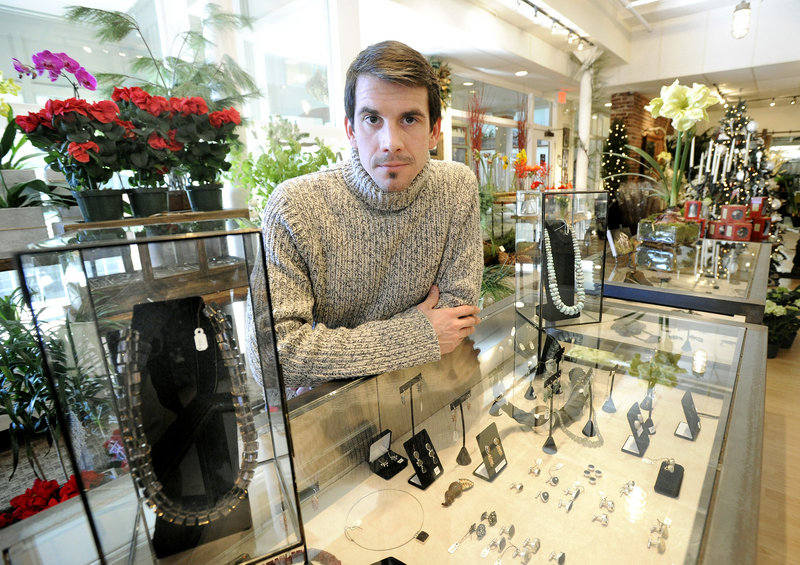
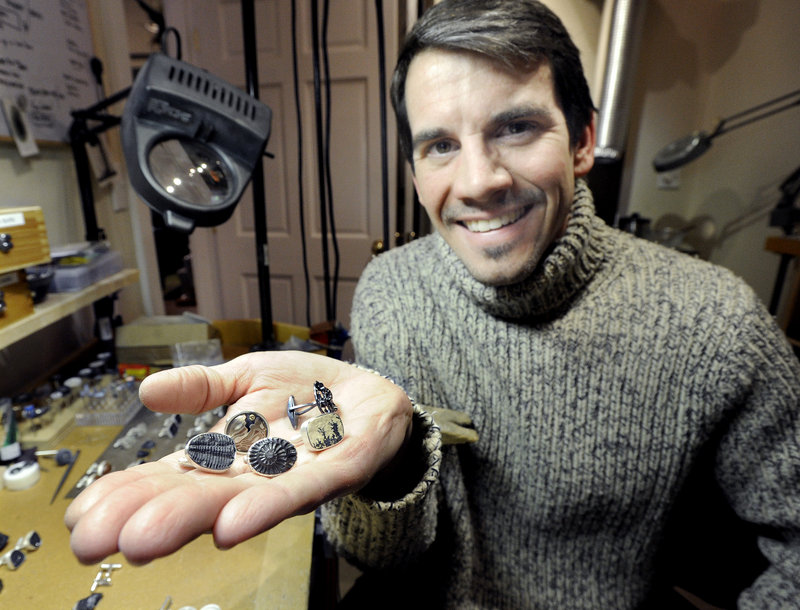
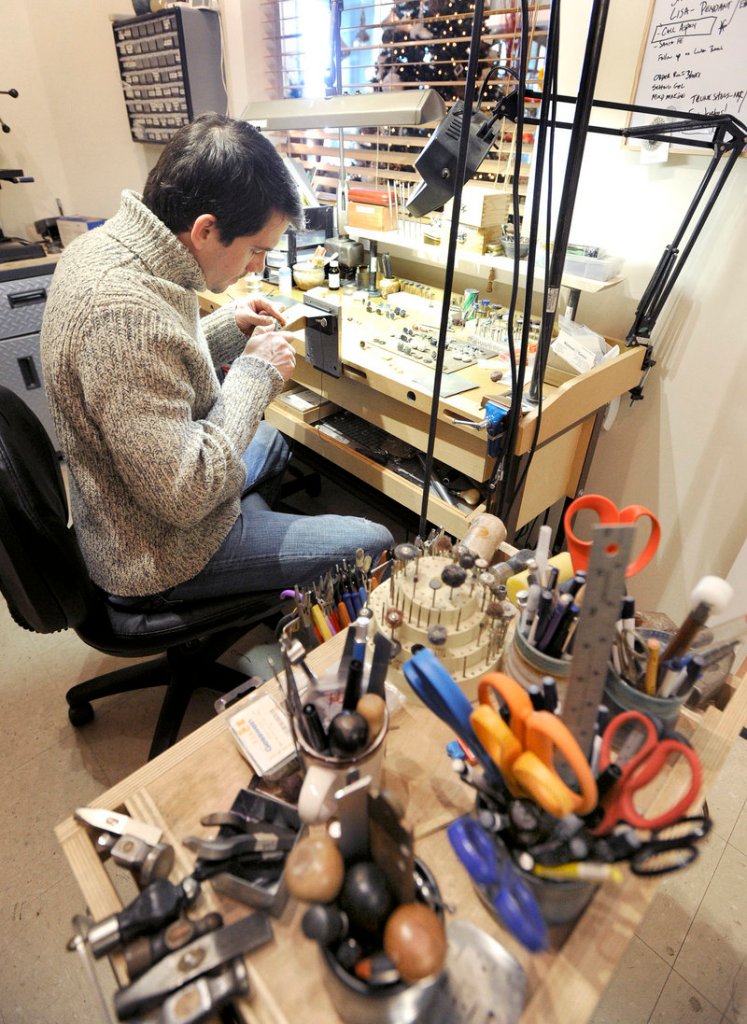
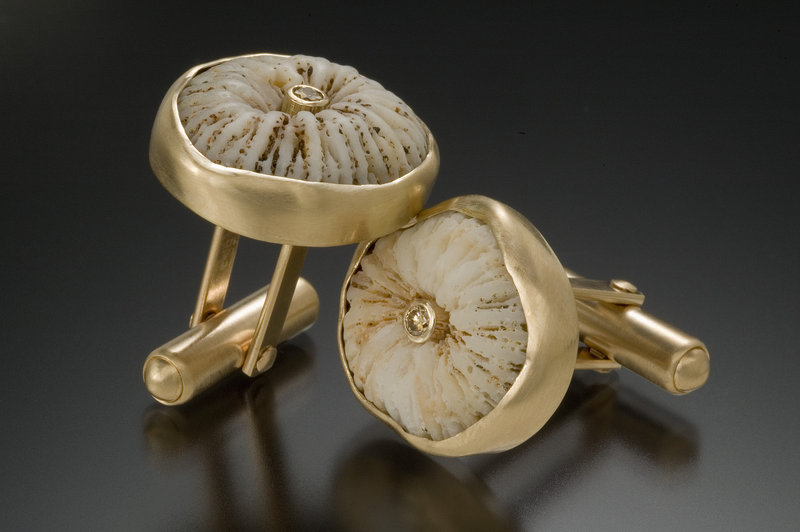
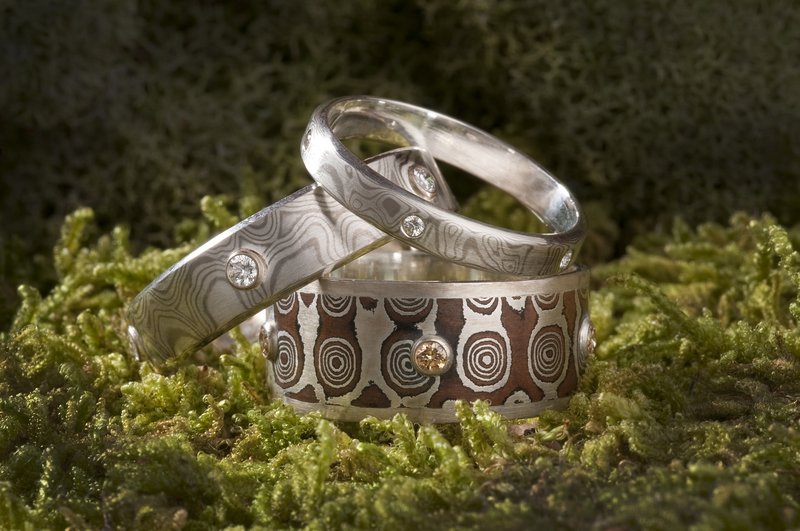
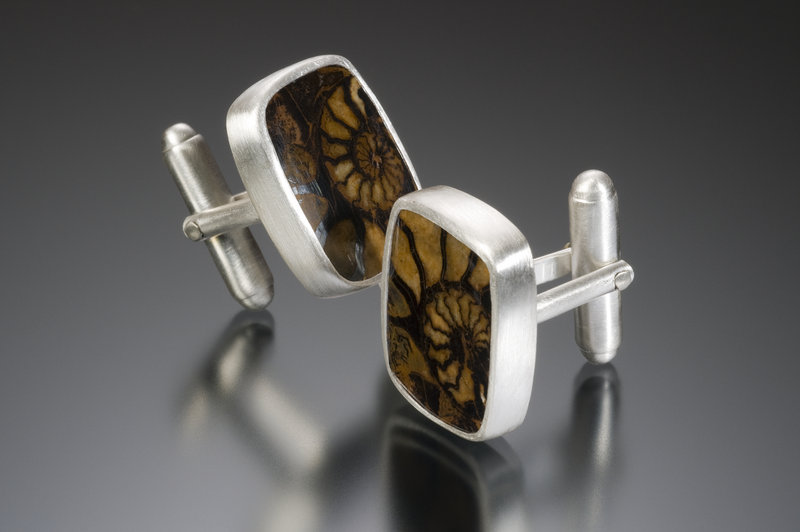

Success. Please wait for the page to reload. If the page does not reload within 5 seconds, please refresh the page.
Enter your email and password to access comments.
Hi, to comment on stories you must . This profile is in addition to your subscription and website login.
Already have a commenting profile? .
Invalid username/password.
Please check your email to confirm and complete your registration.
Only subscribers are eligible to post comments. Please subscribe or login first for digital access. Here’s why.
Use the form below to reset your password. When you've submitted your account email, we will send an email with a reset code.